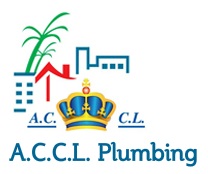Tankless Water Heaters: Energy
-Efficient and Space-Saving Water Heating Solutions
Tankless water heaters, also known as on-demand or instantaneous water heaters, have gained popularity in recent years due to their energy efficiency and space-saving design. Unlike traditional tank-style water heaters, tankless models heat water only when needed, providing a continuous supply of hot water while reducing energy consumption.
How Tankless Water Heaters Work
Tankless water heaters use a heat exchanger to warm water as it flows through the unit. When a hot water tap is turned on, cold water enters the unit, and a gas burner or electric element heats it to the desired temperature. This process allows for:
– Continuous hot water supply: Tankless water heaters can provide a continuous supply of hot water, as long as the unit is properly sized for the household’s needs.
– Energy efficiency: By only heating water when needed, tankless water heaters can reduce energy consumption and lower utility bills.
Benefits of Tankless Water Heaters
– Energy efficiency: Tankless water heaters can be up to 34% more efficient than traditional tank-style water heaters.
– Space-saving design: Tankless units are compact and wall-mounted, freeing up valuable floor space.
– Longer lifespan: Tankless water heaters can last up to 20 years or more, compared to 10-15 years for traditional tank-style water heaters.
– Reduced risk of leaks: Tankless water heaters do not store water, reducing the risk of leaks and water damage.
Types of Tankless Water Heaters
– Gas-powered tankless water heaters: These units use natural gas or propane to heat water and are often more efficient than electric models.
– Electric tankless water heaters: These units use electricity to heat water and are often more suitable for smaller households or specific applications.
Considerations and Installation
– Proper sizing: Ensure the unit is properly sized for the household’s hot water needs to avoid inadequate hot water supply.
– Installation requirements: Tankless water heaters require specialized installation, including venting and gas line connections.
– Maintenance: Regular maintenance is necessary to ensure the unit operates efficiently and effectively.
Conclusion
Tankless water heaters offer a range of benefits, including energy efficiency, space-saving design, and longer lifespan. By understanding how tankless water heaters work and considering the benefits and installation requirements, homeowners can make informed decisions about whether a tankless water heater is right for their needs

